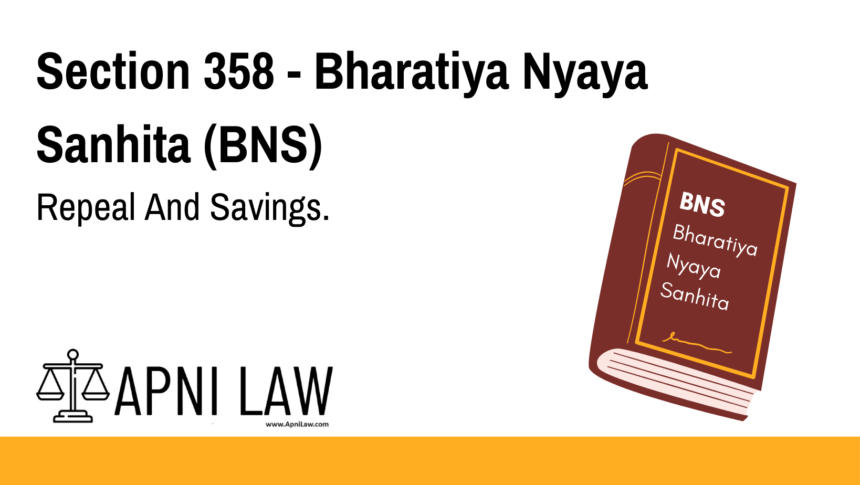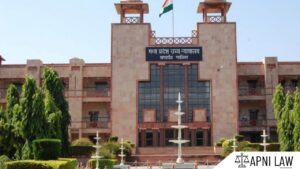Code: Section 358 BNS
(1) The Indian Penal Code is hereby repealed.
(2) Notwithstanding the repeal of the Code referred to in sub-section (1), it shall not
affect,—
(a) the previous operation of the Code so repealed or anything duly done or
suffered thereunder; or
(b) any right, privilege, obligation or liability acquired, accrued or incurred
under the Code so repealed; or
(c) any penalty, or punishment incurred in respect of any offences committed
against the Code so repealed; or
(d) any investigation or remedy in respect of any such penalty, or punishment; or
(e) any proceeding, investigation or remedy in respect of any such penalty or
punishment as aforesaid, and any such proceeding or remedy may be instituted,
continued or enforced, and any such penalty may be imposed as if that Code had not
been repealed.
(3) Notwithstanding such repeal, anything done or any action taken under the said
Code shall be deemed to have been done or taken under the corresponding provisions of
this Sanhita.
(4) The mention of particular matters in sub-section (2) shall not be held to prejudice or
affect the general application of section 6 of the General Clauses Act,1897 with regard to the
effect of the repeal.
Explanation of Section 358 BNS
Section 358 of the Bharatiya Nyaya Sanhita (BNS) addresses the repeal of the Indian Penal Code (IPC), 1860, while ensuring the continuity of legal rights, obligations, and proceedings. The key points include:
- Repeal of IPC (1860): The IPC is officially repealed, meaning it is no longer in force as the governing criminal law.
- Savings Provisions: Despite the repeal, the following remain unaffected:
- All actions or legal proceedings conducted under the IPC before its repeal.
- Rights, privileges, obligations, or liabilities acquired under the IPC.
- Penalties or punishments for crimes committed under the IPC.
- Ongoing investigations or remedies related to these penalties.
- Deemed Continuity: Any legal action taken under the IPC is considered to have been done under the corresponding provisions of the BNS.
- General Application of Repeal: The provision ensures that the repeal does not affect other legal principles, especially those under the General Clauses Act, 1897, which governs the interpretation of laws in cases of repeal.
Illustration
Example 1: Continuity of Legal Proceedings
Suppose a person was charged with theft under the IPC, and their trial was ongoing when the BNS came into effect. The trial will continue under the BNS as if the IPC had never been repealed.
Example 2: Rights and Liabilities
An individual who had acquired property rights under the IPC’s provisions will retain those rights under the BNS without any disruption.
Common Questions and Answers on Section 358 BNS
1. What does Section 358 of the BNS do?
- Answer: It repeals the Indian Penal Code, 1860, but ensures that past legal actions, rights, obligations, and penalties under the IPC remain unaffected.
2. Will past criminal cases under IPC be invalid?
- Answer: No, they will continue under the BNS as if the IPC was never repealed, with proceedings governed by the new law.
3. How does Section 358 affect ongoing investigations?
- Answer: Ongoing investigations under the IPC will continue seamlessly, and any penalties or punishments imposed will remain valid under the BNS.
4. Does Section 358 impact the General Clauses Act, 1897?
- Answer: No, it confirms that the General Clauses Act, 1897 applies to interpret the effects of the repeal, ensuring legal clarity.
Conclusion
Section 358 of the Bharatiya Nyaya Sanhita (BNS) ensures that while the Indian Penal Code, 1860 is repealed, the legal system remains stable. It protects the rights of individuals, the validity of past legal actions, and the continuity of ongoing cases. This provision acts as a bridge between the old and new legal systems, maintaining legal certainty and consistency.










